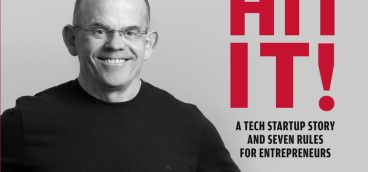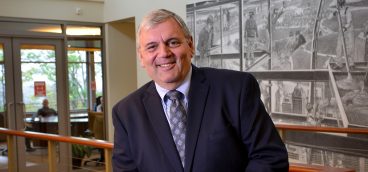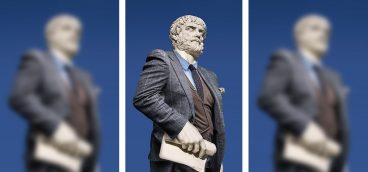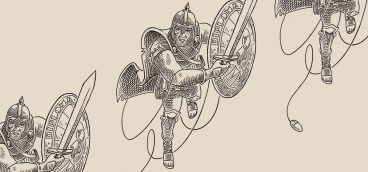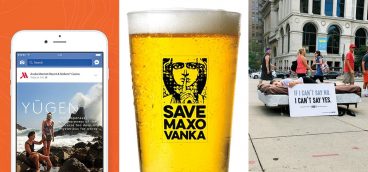Doing Business with People
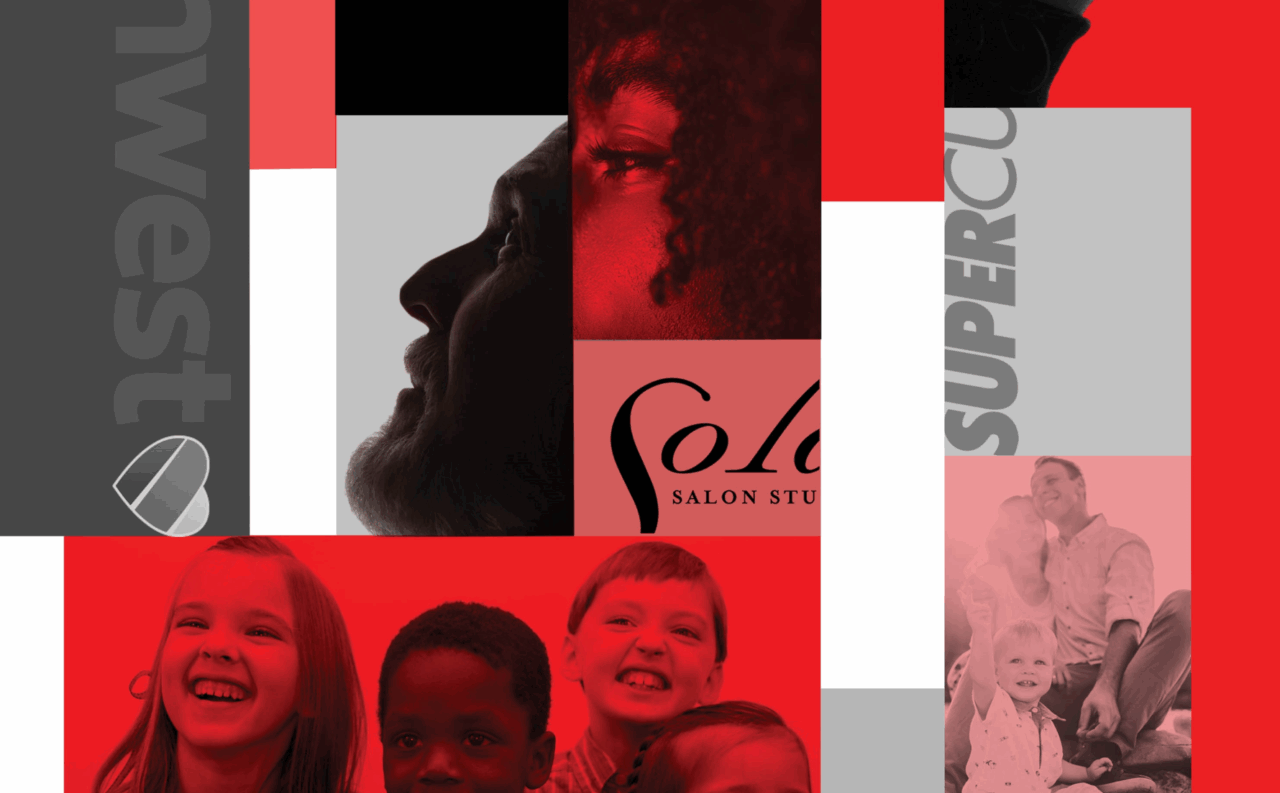
It was a couple summers back, when I was sitting down the third base line at PNC park, that my thirst finally won. I had made it through three toasty innings, but now it was time for a frosty draft beer. As I worked my way from the outfield to home plate, I passed four concession stands without beer on tap. I could see the dry, dead spigots were still there without the logoed pulls that obviously had been removed. It was disturbing. They were lined up like silent decommissioned chrome soldiers that would never return to duty.
Thirst continuing to build, along with my curiosity, I asked a polite concessionaire what gives. She said matter of factly that there was no more beer served on tap in the stadium. “Wait, what do you mean, ‘no more’?” I stammered. I’m in a Major League Baseball stadium and it’s July and it’s hot and I’m thirsty. “Ya, no more tappers,” she finished. “Just serve-yourself cans.” Inconceivable, but true. Outdoor smoking in the stadium was done away with years ago. And I must admit, I kind of miss the classic Walter Matthau cigar-smoking, throw-back baseball fan sitting next to me. However, I get the smoking ban. But draft beer being eliminated? Heresy. A cold beer on tap is like peanut shells crunching under your shoes or a mustard-smothered pretzel. It is baseball, or at least spectating baseball.
I began to suspect McKinsey-esque financial analyst consultants had pinpointed the travesty of wasted ounces of beer foam and imprecise, careless beer pours by annoying humans.
In early March this year, the legendary Herb Kelleher, founder of Southwest Airlines, could be detected rolling over in his grave. A letter from CEO Bob Jordan announced no more free checked bags, no more random seating, no more amateur stand-up comics making pre-takeoff announcements. The popular perks and quirky personality of the lovable airline will be lobotomized, the letter coldly announced. The hedge fund Elliott Investment Management recently made a $1.9 billion investment in the airline and has an urgent need for more revenue and profit, apparently.
OK, I’m not exactly surprised; this is the current trend. My question is, how much more do you, Elliott, and your shareholders need — and really, why? Are you not aware of the value of the brand personality your airline enjoys with its loyal customers or “enthusiastic fans”? Another question: Is the financial gain in Pirates game-day beer sales worth the diminished ballpark tradition and experience? Is the elimination of sloppy beer pours and the associated payroll cost reduction worth the takeaway? The spooky conclusion is, yes, it is worth it if your overriding priority is money.
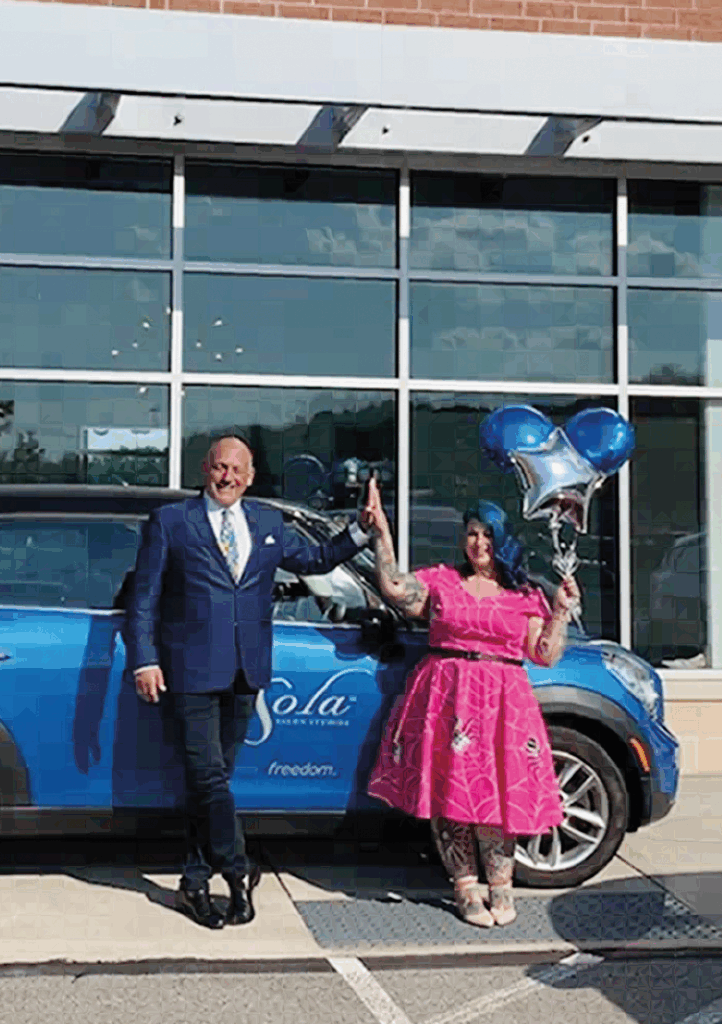
The swinging pendulum has been gaining speed recently and seemingly is solely focused on almighty EBITDA. I’m concerned about more collateral damage and loss if this continues to accelerate. The aggressive growth and omnipresence of private equity and investment banking is the new reality. And yes, money talks. But a lot of the changes are stark and sad.
I’m starting to feel prehistoric, but I have always felt resolute in the commandment that your organization is your people, and their well-being is of the utmost, nothing-comes-before priority. I have put my money where my mouth is and have been fortunate to experience success right here in Pennsylvania doing exactly that. In my business startups and on the subsequent entrepreneurial trail, I had the good fortune to share work and life with the everyday, dependable, lunchpail-carrying American worker. And then later, in another enterprise, I worked with the gutsy, first-time, lionhearted, and aspiring American entrepreneur. Working with both were precious gifts.
In my first business — Supercuts, started in Pittsburgh in 1992 — we hired and worked with almost 500 hair stylists at the zenith of its operation. Over those 20 years, almost 4,000 beauty pros were in our employ, coming and going. I fondly referred to them as our “pink-collar workforce.” And truly, that’s what they were — a force with which to be reckoned. They were large and in charge. They stood at their stations and on their feet for eight, sometimes 10, hours a day. They dealt with a general public, people who were either appreciative or rude, hygienic or not. They were sisters, mothers, daughters, dads, sons, and brothers. Point being, they had important personal responsibilities even before they delivered on their professional responsibilities at our salons. They had to be experts in listening, adapting, teaching, caring, problem-solving, fixing, giving, cutting, and styling — all the while demonstrating impressive talent and creativity as artists.
As beauty professionals, I used to tease these remarkable people about their “birth defect.” I told them that as devoted beauty pros they had the defect of an oversized heart, and their hearts were 24-karat-giving gold. They were always the most responsible people in their respective worlds. They would do free beauty services, lend money that they would never see again, and look after someone’s elderly mother. They were the people upon whom everyone in their worlds depended all the time.
These beauty pros put others first, and maybe at the end of the day, there would be something left over for themselves. I’ve never experienced harder workers or a more steely work ethic. That’s precisely when I learned about our great, regional attribute: the western Pennsylvania work ethic.
Then came our Sola Salon Suite customers, who were also beauty professionals and who courageously filled our Sola Studios. In doing so, they gave birth to and opened their own businesses. And for the first time professionally, they were 100 percent in charge of their lives. All this while battling stout resistance from the commonwealth and disdain from existing salons.
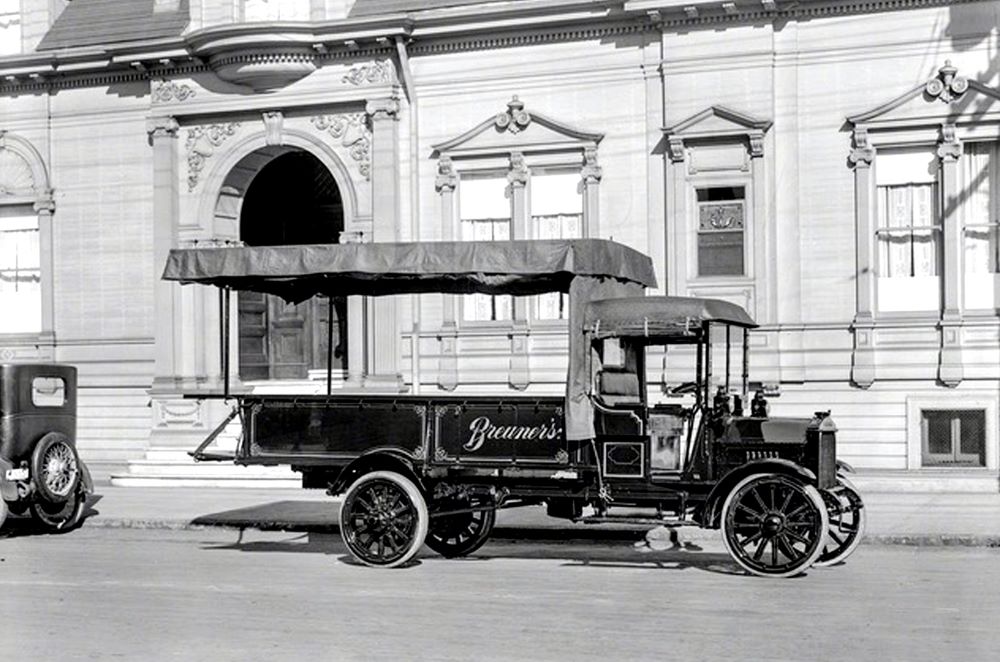
We walked the walk and talked the talk … putting people before EBITDA, or at least right alongside. Like many respected small businesses in the area, we provided the best health insurance we could afford and, after a while, introduced 401(k) plans. We were always celebrating, be it the salon happy hours, the summer picnic, Sola day at Kennywood, or the holiday blowout. Next, we rolled out a company car plan offering VW bugs and PT Cruisers for salon managers. The annual Caribbean cruise was probably the topper. We offered rapid merit-based advancement. All these activities were an EBITDA opportunity cost — meaning we theoretically generated less profit because of the associated costs.
But thinking of it another way, if you consistently demonstrate maximized love for your greatest resource — your people — most of them will respond with remarkable compliance and stunning productivity. Substantial profit will follow.
I feel so strongly about not losing this ethic that I have written a book about it, to re-energize and perpetuate this practice. To blow on the simmering embers of the past. To give encouragement to those headed into upper management or hopping onto the entrepreneurial trail. To flat-out sell the notion that this age-old approach still works.
The book — Old Fashioned HORSE SENSE — emphasizes a simplified return to common sense and the invaluable experience earned from four different Pennsylvania startups. But what the heck is “horse sense”? It is an old Western term that describes uncanny emotional and observational intelligence. In today’s climate, we seem to have overcomplicated things. It’s really pretty simple: Extraordinary people make the difference in business. Attracting and retaining great people has always been challenging. Then came COVID, and now some view it as impossible. On the contrary, this people approach works better than ever and now might be imperative.
The book details how to create the extraordinary atmosphere for your employees first and then your customers. These methods and tools are effective, simple, and fun. Entertaining and true stories show how to establish your brand or product as the category leader and, in the process, put a vast distance between you and your competitors, even making them irrelevant.
A successful business is meant to do so much more than just generate maximized profits. It can also maximize the benefits for its dedicated employees: top-notch health insurance, a college education, life insurance, transportation, and maybe even, dare I say it, an innovative and revisited version of pensions. It has been proven numerous times that if we prioritize the people with the profit in our businesses, all inherent finances will take care of themselves.
I’m not native to western Pennsylvania, but I am grateful I had the horse sense to move here in the early 1990s. I’m a northern Californian who came from a five-generation business that was a start-up — an 1856 startup. My father, the fourth generation, presided over The John Breuner Furniture Company, a West Coast concern started by my great-great-grandfather, Johann Friedrich “John” Breuner.
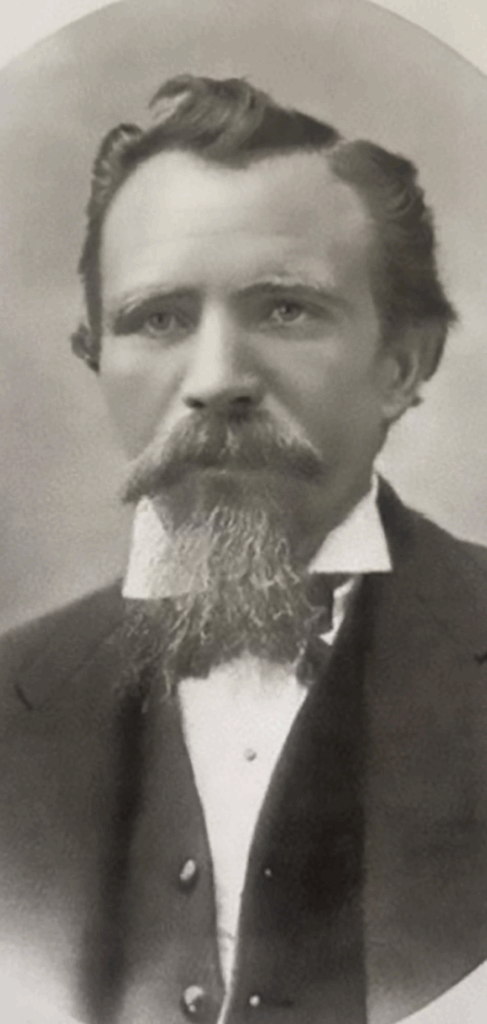
In 1851, my great-great-grandfather emigrated down around Cape Horn from Germany to Sacramento, trying to capitalize on the California Gold Rush and strike it rich for his family. Like most, he did not find gold. But he did strike it rich. With such a massive influx of people engorging the mining towns of California, there was voracious demand for furniture. And having been a cabinet maker in Germany, he was rarely without clients or furniture orders. He made such a name for himself that he was asked to craft all the furniture and fixtures for the new California State Capitol in Sacramento. His product and employees must have been extraordinary.
The John Breuner Furniture Company was onto its fifth generation when I decided to take a different path. That path sent me 2,500 miles east to western Pennsylvania. “Because there is gold in them thar Appalachian hills!” Only because of the wonderful people of this beautiful region were we able to create a Supercuts franchise operation with over 50 locations across Pennsylvania. We employed thousands of people and improved their standard of living. Our annual sales were in eight figures, and we served 3,000 customers daily.
The concepts that build such success are painfully simple: Take extraordinary care of your employees so they will take care of your customers and business. Serve your clients in an extraordinary manner so they do your marketing for you. And attract and surround yourself with the most positive and supportive collaborators so they can help you overcome any challenges.
The book intends to share innovations and actual stories to help shape better business owners — owners for whom people want to work hard and be around. Owners who make a striking difference in the lives of their employees and clients. People should not be Zambonied aside to make room for increased EBITDA, especially now with AI knocking on the door.
If we lose this American business DNA, where a business’s primary objective is to take care of employees and customers first, it will feel like a baseball park with no draft beer or a once-friendly airline that has become just like all the other dreary carriers. People matter.
pq
Steve Breuner is founder/operator of Sola Salons and SUPERCUTS, business/franchise consultant and real estate developer. He is the author of “Old Fashioned HORSE SENSE,” a compendium of stories and lessons he experienced while venturing down the entrepreneurial trail. Learn more: Oldfashionedhorsesense.com



